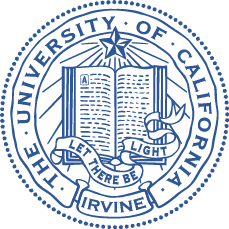This week-long training is for agency or consultant staff with environmental assessment responsibilities, local government staff working on Federal programs, development professionals, and members of the public wanting to comment and influence federally-funded projects.
The class will be interactive; The first half of each day will be lecture-based and the second half will be in small groups. The class is structured so that small teams put together an environmental review for a case study site, working each day on the modules being studied. This will include a site visit on Tuesday close to campus.
Learning Objectives:
By the end of this course, participants should be able to:
• Comply with Federal environmental planning requirements: under NEPA (National Environmental Policy Act) which acts as an umbrella for an environmental planning process that includes about 20 other Federal environmental mandates that cover historic preservation, floodplains, wetlands, noise, site contamination, etc.
• Use the NEPA process to promote local or tribal environmental goals and objectives, such as those promoting sustainability
• Use the NEPA process to influence the design and structure of Federal projects, both from an implementing agency’s perspective and from that of an affected local or tribal government.
Principle Differences from Conventional Training:
• Inter-agency coordination with Federal and state agencies
USACE FEMA ACHP USEPA SHPO USDOT
• Expert speakers (public and private)
• More exercises (including simulation of Environmental Assessment)
• Field trip to site under redevelopment for hands-on experience
• One-on-one classroom interaction
• Integration of sustainability into core curriculum
• Textbook (Using Environmental Assessment to Move Toward Sustainability)
• Extensive handout materials, including textbook, form book, and DVD with resource materials and videos
• Opportunities for Peer-to-Peer education
Who Should Attend? Local government staff involved in such programs as HUD, subsidized housing, planning and redevelopment; development professionals
Questions about the course should be referred to Eugene Goldfarb at egoldf1@uic.edu or 847-831-9142.
Questions about registration/logistics should be referred to erc@ph.ucla.edu or lmlorenzana@ucla.edu or 310-206-2304.
Agenda
Monday March 25: NEPA, Getting Started and Water
- 7:45am: Sign-In and Pretest
- Welcome & Introductions
- Overview and NEPA Intro
- Exercise: Name that Level of Review
- Floodplain Management – The Awesome Power video
- Water Module
- Sustainable Stormwater Practice: Marcy Hamilton, SWMPC
- Wetland Identification and Management
- Water Module (cont’d – Wetlands)
- 4:00-4:45pm: First Steps – Getting Started (Project Description/Aggregation; Getting Information from Internet; Map Reading; Initial Screening and Issue Identification)
Tuesday March 26: Historic Preservation and Site Visit
- 8:00am: American Legacy: The Work of the Natl Reg of Hist Places
- Historic Preservation Background & 106 Process
- Site Visit & Lunch
- Historic Preservation Process – Data & Archaeology: Stacy St. James, South Central Coastal Information Center
- 2:30–4:30pm: Work on Case Study Simulation
Wednesday March 27: Site Contamination, Brownfield Redevelopment, Other Authorities, & Healthy Homes
- 8:30am: This is Superfund
- Site Contamination Policy
- ESA Site Characterization Process: Scott English, Rincon consultants
- Site Contamination II including Brownfield
- Group Exercise – work on simulation
- Noise
- 51C Explosive and Flammable Hazards & 51D Clear Zones
- Coastal Zones & Barriers
- Other Applicable Authorities (Sole Source Aquifer; Prime Farmland; Air Quality; Wild & Scenic Rivers)
- Biodiversity – Endangered Species
- Local Planning Factors
- 3:45-5:00pm: Q&A & Case Study Time
Thursday March 28: Site Visit, Using the EA Process to Promote Local (Sustainable) Objectives & Environmental Justice
- 8:15am: Q&A Report on work on case studies for Friday presentation
- Finalizing Review & Request for Release of Funds
- Form Book, HEROS & Record Keeping
- Tiering & Programmatic Reviews
- Groups work
- State & Local EA Processes (including CEQA)
- Environmental Justice (sustainability)
- Using EA Process to promote Local Goals & Objectives
- Building Communities: Jim Van der Kloot, formerly USEPA
- 3:00-4:30pm: Q&A & Work on Exercise Cases Study
Friday March 29: Review, Presentations, and Wrap Up
- 8:00am Review, Q&A
- Review of Pretest
- Final Prep Cases
- Presentation of Cases
- Energy Efficient Rehab
- 11:15–11:45am: Take Home Final Exam
*Agenda subject to modification
Other Registration Options
Call Us: 310-206-2304
Email Us: lmlorenzana@ucla.edu, erc@ph.ucla.edu
Payment Terms:
Classes are subject to cancellation by the host due to low registration or scheduling issues. If a class is cancelled by the host, participants will receive a full refund of their original payment.
(rev. 11/6/09):
Participant cancellations must be in writing. Refund schedule due to participant-requested cancellations is:
- 15 or more business days before the class: 80% of registration fee
- 7-14 business days before the class: 50% of registration fee
- Less than 7 days before the class and “no shows”: No refund
If course materials such as books have been sent to course participants in advance, the cost of that material will be subtracted from the refund.
UCLA reserves the right to postpone an offering 7 days prior to the course date should minimum enrollment requirements not be met. If a program is canceled, you will be notified and your registration fee will be refunded in full, less the cost of course materials sent in advance if they are not returned in the condition in which they were received. The liability of UCLA is limited to the course fee.


